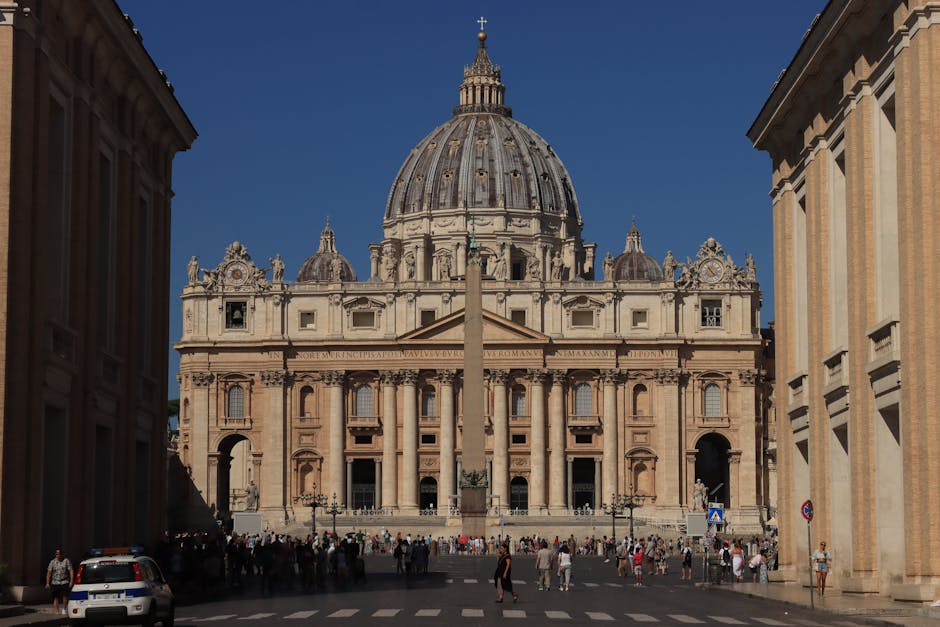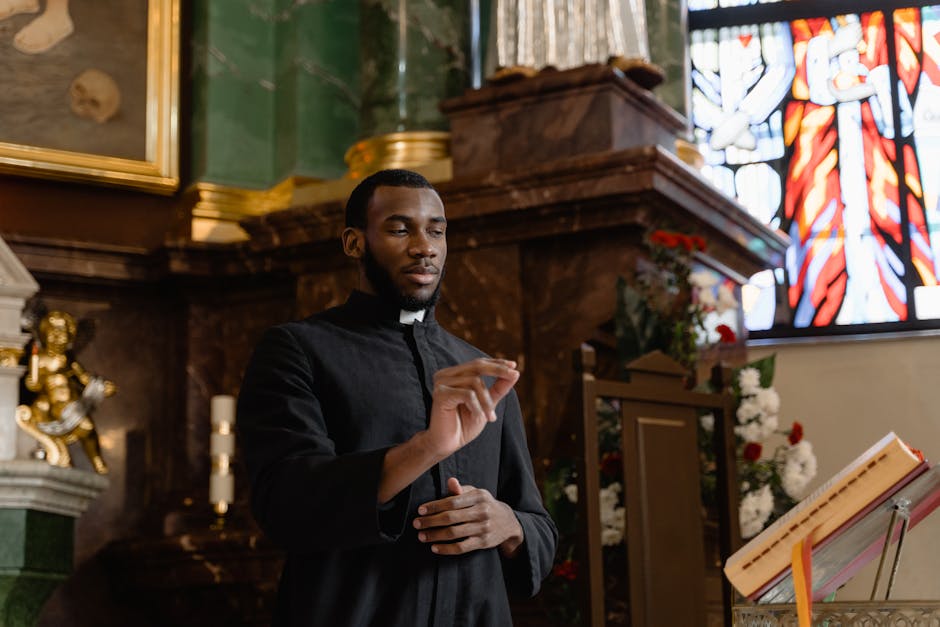The Art of Faithful Renovation: Governance and Mission in a Living Church
Just as a skilled mason tends to a historic cathedral, the Church periodically undertakes careful, patient work to ensure its structures are sound, beautiful, and ready to serve their sacred purpose. This principle of faithful renovation is currently visible in the multi-year process of refining the canonical framework of the personal prelature of Opus Dei.
Guided by directives from Pope Francis, this effort is far more than a simple administrative adjustment. It represents a deep, prayerful reflection on how to best align governance with the Church’s universal mission while safeguarding the unique spiritual gifts entrusted to this part of Christ’s body. The process offers a powerful lesson for all the faithful on the virtues of prudence, dialogue, and collaborative fidelity, reminding us that well-ordered structures are not an end in themselves, but a means to more fruitfully live and share the Gospel in the world.
The Foundation of Renewal
Any meaningful renovation begins with a clear understanding of the original architect’s vision. In the life of the Church, this means returning to the foundations of our faith and mission. When the Holy Father initiates a process of structural renewal, as he has with Opus Dei through two specific papal directives, it is an invitation to the entire ecclesial family to re-examine our own foundations. The goal is never to demolish what is good, but to strengthen, clarify, and better integrate every part of the structure into the magnificent whole.
This work is rooted in a desire for greater communion and more effective apostolic work. It seeks to ensure that roles are clear, responsibilities are well-defined, and accountability is woven into the very fabric of an institution’s life. For Opus Dei, this means carefully studying its governing statutes to ensure they support its charism of finding God in daily work and life, while also reinforcing its connection to the hierarchical life of the universal Church. It is a slow, deliberate task, undertaken not in a spirit of disruption, but with the pastoral patience required to make changes that will endure.
Unless the Lord builds the house, those who build it labor in vain. (Ps 127:1)
This process reminds every Catholic, whether in a family, a parish, or a lay movement, that our shared life is built on the rock of Christ and guided by the apostolic authority He established. Our own small efforts at renewal find their meaning and strength when they are aligned with the broader work of the Holy Spirit in the Church.
Blueprints for a Stronger Mission
The adjustments being made within Opus Dei are designed to serve its mission, not hinder it. The canonical changes aim to fortify the prelature’s ability to carry out its apostolic work with renewed clarity and purpose. By clarifying lines of governance and strengthening its integration within the diocesan and universal Church structures, the renewal ensures that the unique spiritual gifts of the prelature contribute even more effectively to the common good.
This mirrors the wisdom of Saint Paul, who described the Church as a single body with many parts, each essential to the health of the whole. A reform of this nature is like ensuring the ligaments and sinews connecting different parts of the body are strong and flexible. It fosters a healthier collaboration between the particular charism of a group and the pastoral needs of the local dioceses where its members live and work. Ultimately, this leads to a more unified and powerful witness to the Gospel. The laity and priests of the prelature are called to live out their vocation to holiness in the middle of the world, and this renewal is meant to provide the clearest possible framework for that beautiful and demanding mission.
For as in one body we have many members, and the members do not all have the same function, so we, though many, are one body in Christ. (Rom 12:4-5)
Practical Tools for Building in Communion
The principles guiding this ecclesial renewal—dialogue, prudence, accountability, and fidelity to the common good—are not just for canon lawyers and prelates. They are virtues every Catholic can cultivate in their daily life to build up the Body of Christ. The table below offers practical ways to apply these principles in our own spheres of influence.
| Practice | Where to Apply | Why It Serves the Common Good | First Small Step |
|---|---|---|---|
| Prudent Dialogue | Family decisions, parish council meetings, civic forums | It prevents rash decisions and ensures that multiple perspectives are prayerfully considered, leading to wiser outcomes. | In your next important conversation, pause and ask, “What have I not yet considered?” before making up your mind. |
| Clarifying Roles | Household chores, volunteer teams, workplace projects | It reduces confusion and resentment, allowing each person to contribute their gifts confidently and effectively. | Gently initiate a five-minute conversation to clarify who is responsible for a specific, shared task. |
| Fidelity to a Shared Mission | Catholic-owned businesses, school parent groups, ministry teams | It ensures that individual efforts are aligned with the group’s foundational purpose, preventing mission drift and internal division. | Re-read your organization’s mission statement and ask how your current task directly supports it. |
| Humble Accountability | Personal spiritual life, marriage, collaborative work | It builds trust and creates a culture of continuous improvement, where mistakes become opportunities for growth. | When you make a small error, admit it simply and directly, and state how you will correct it. |
| Integrating with the Whole | Parish initiatives, lay apostolates, family life | It reminds us that our work is part of something larger, fostering unity with the local diocese and the universal Church. | Before launching a new initiative, ask your pastor how it might best serve the overall pastoral plan of the parish. |
A Personal Checklist for Faithful Renovation
We are all called to the work of renewal in our own lives. Here is a short checklist to help translate these large ecclesial principles into personal, concrete actions:
- Schedule a quiet time this week to review your personal, family, or professional priorities and see if they align with your deepest-held values.
- Identify one relationship where communication could be improved and plan a time to listen with an open and generous heart.
- Seek guidance from a trusted mentor, spiritual director, or pastor on a significant decision you are facing.
- Read the pastoral plan for your local diocese to better understand the needs and priorities of the wider Church community you belong to.
- Offer a prayer of thanksgiving for the gift of the Church and for all those working patiently to strengthen her structures for the glory of God.
Test everything; retain what is good. (1 Thess 5:21)
The journey of renewal, whether for a large ecclesial institution or for a single soul, is a testament to the Holy Spirit’s living presence in the Church. The careful, prayerful, and dialogical process of reform within Opus Dei serves as a hopeful sign for all Catholics. It shows us that structures are not static relics, but living frameworks meant to support our sacred task. By embracing the virtues of patience, fidelity, and a commitment to the common good in our own lives, we participate in this same work of renovation, helping to build a Church that carries out its mission with ever greater clarity, unity, and love for generations to come.




